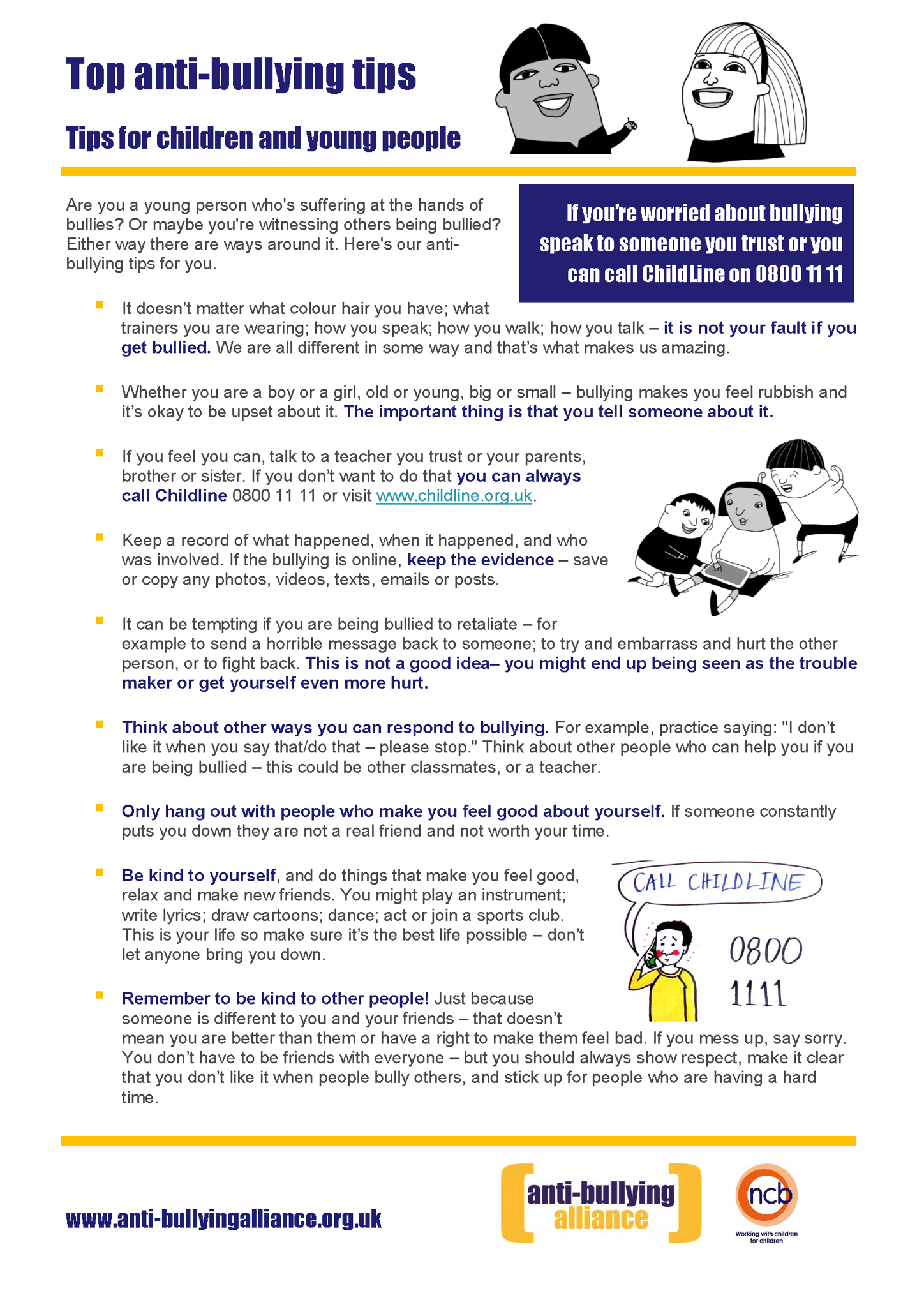Anti Bullying at Little Ilford School
Little Ilford is a bully-free zone. We believe it is unacceptable in all forms and situations and it will not be tolerated. We are a telling school and expect all staff, students and parents to stand against it and report if they have been the victim of bullying; have witnessed bullying or even that they feel their behaviour has crossed over into bullying and they would like help to change it.
Little Ilford School is aware of the statutory responsibility to discipline students for poor behaviour outside the school premises. Section 89(5) of the Education and Inspections Act 2006 gives Headteachers the power to discipline students for poor behaviour when they are not on school premises. This can relate to bullying incidents occurring anywhere on or off the school premises. This policy should be used alongside the school’s Safeguarding Children Policy as peer-on-peer abuse must be considered as a potential source of significant harm.
Aims
- To work towards the elimination of bullying at Little Ilford School
- To enhance the Behaviour Policy which confirms the school expectations;
- To involve all members of the school community in countering bullying;
- To enable students, staff, parents and governors to understand what constitutes bullying and their specific responsibilities;
- To ensure that there are strategies to minimise the risk of peer on peer abuse and procedures;
- To enable parents to feel confident that bullying will be firmly dealt with by the school;
- To inform all members of the school community that bullying behaviour will not be tolerated.
What is bullying?
ABA defines bullying as the repetitive, intentional hurting of one person or group by another person or group, where the relationship involves an imbalance of power. It can happen face to face or online. There are different types of bullying:
- Psychological (being excluded from groups and rumours etc.)
- Cyber (abusive text messages, internet messages etc.)
- Verbal (threats, name calling, racism, homophobia etc.)
- Physical (punching, kicking, scratching, pushing, throwing objects at someone etc.)
Bullying invariably undermines self-confidence and initiative and can create a cycle of poor performance and further criticism, potentially causing depression, stress, mental or physical ill-health, with consequent absence from school or work.
If you feel that you have been the victim of bullying, you should tell any adult nearby. If this is not possible (e.g. it is online), please see your tutor or head of year as soon as possible. Make sure you write down what happened; who was there; what was said/done; if there were any witnesses; and save any online abuse.
We aim to deal with any act of bullying as soon as possible. We use a range of strategies to address incidents including education; circle time; reflective practices and school sanctions.
If you would like any further information on bullying or our anti bullying stance, please go to the Anti Bullying Alliance website online or see Mr Burke or any member of the pastoral team in school.




.png)






.png)

.png)
.png)
.png)